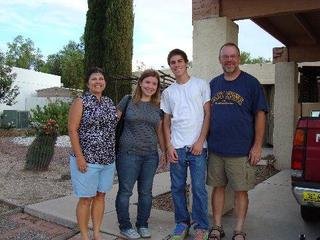Tuesday, February 02, 2010
Jesus Meets Us in Every Day Life
We have been considering the lectionary texts for the Sundays in Epiphany in our worship. This Sunday the text is Luke 5.1-11. This is the story of Jesus calling his first disciples. I think this text tells us about how we, too, can encounter Christ, and how that can lead us forward in our faith journey. Join us Sunday!
The worship bulletin is here.
Atheist and Atonement
Christopher Hitchens on the Atonement
Published by Rick Meigs on February 1st, 2010 in Quotes.
Christopher Hitchens was in Portland recently for a speaking engagement. Unitarian minister Marilyn Sewell interviewed him for a local publication, Portland Monthly. The interview was pretty much what one would expect, but I did find the following a fascinating observation from Hitchens:
Now, I think there are several possible responses to this exchange.Sewell: The religion you cite in your book is generally the fundamentalist faith of various kinds. I’m a liberal Christian, and I don’t take the stories from the scripture literally. I don’t believe in the doctrine of atonement (that Jesus died for our sins, for example). Do you make any distinction between fundamentalist faith and liberal religion?
Hitchens: I would say that if you don’t believe that Jesus of Nazareth was the Christ and Messiah, and that he rose again from the dead and by his sacrifice our sins are forgiven, you’re really not in any meaningful sense a Christian.
First, you could say, "That's right!" And in many ways, I would agree with Hitchens about what it means to be a Christian.
Second, you could say "Wait a minute. An atheist is not going to define Christianity for me." And I think that is a valid point too.
Third, I think we must come to terms with the fact that people (yea, our whole culture) HAVE defined Christianity. We all live with that definition whether or not it fits with our personal faith. When you say "Christian", that means something generally to the general public. It might mean something different to you, but in order for language to have meaning, there must be some level of agreement on what the words mean. Does that mean we start calling ourselves something different? This reminds me of the video series "Christfollower vs Christian" (a parody of the Mac vs PC commercials) that you can probably find on Youtube. Or does this mean that we proudly and maybe rebelliously wear the label Christian? Knowing that people are going to judge us anyway, why try to hide? This reminds me of how gay people have taken back the epiphet "queer" and have used it themselves.
I believe strongly that there is a different kind of Christian today--one that is not defined by the religious/political fundamentalism that you find in mainstream America. But in the end, we must admit we are Christian. Maybe we should let how we live define us more than what label we insist on.
